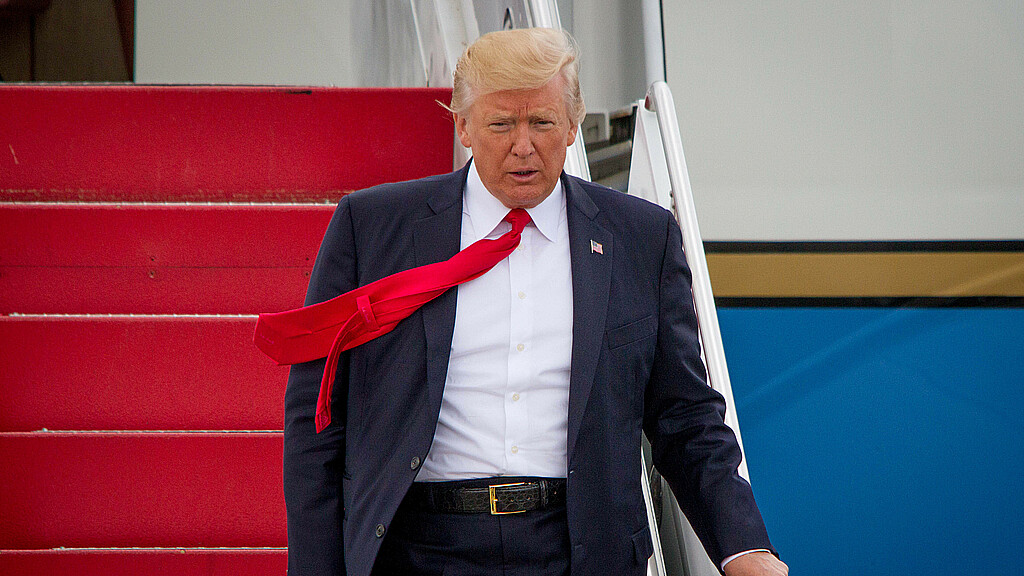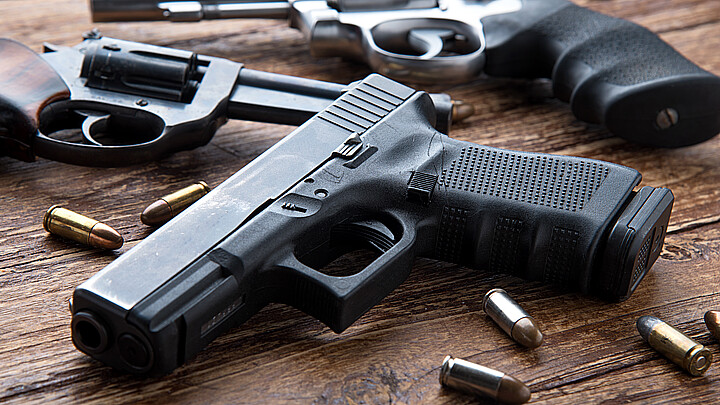Politics
Trump to appear at Miami federal courthouse for arraignment in classified documents case
Chief U.S. District Judge Cecilia Altonaga ruled on Monday that reporters covering the arraignment on Tuesday may not bring cellphones or other electronic devices into the courtroom

June 13, 2023 8:06am
Updated: June 13, 2023 8:47am
Former President Donald Trump has arrived in Miami to appear for his 3 p.m. arraignment at U.S. District Court for the Southern District of Florida. The international tycoon was reportedly waiting at the Trump Doral resort in west Miami after arriving Monday evening in South Florida on one of his signature private jets.
Since Tuesday’s hearing is only an arraignment, in which the former president will enter a formal plea, it will not be presided over by the trial judge, former Trump appointee, Judge Aileen Cannon.
The 76-year-old former president faces 37 felony counts related to his alleged mishandling of classified White House documents. The charges were filed as part of Special Counsel Jack Smith’s ongoing investigation, resulting in a 49-page indictment.
Those charges include accusations of Trump taking hundreds of classified documents after leaving the White House in January 2021 and keeping them at his Mar-a-Lago estate in Palm Beach, and also obstructing U.S. attempts to recover the documents.
Tuesday’s arraignment will instead be heard by U.S. Magistrate Judge Jonathan Goodman, who was assigned by Chief U.S. District Judge Cecilia Altonaga, the top judge for the U.S. District Court of the Southern District of Florida.
Altonaga also ruled on Monday that reporters covering the arraignment on Tuesday may not bring cellphones or other electronic devices into the courtroom.
“It is ORDERED that on Tuesday, June 13, 2023, all cellular phones and/or electronic equipment are hereby prohibited for news reporters and other members of the media inside the Wilkie D. Ferguson, Jr. United States Courthouse in Miami,” Altonaga wrote in her ruling on Monday.
The chief judge also ruled that the U.S. Marshals Service will “continue to inspect all cellular phones and other electronic equipment as they are brought into the federal courthouse facilities as directed to protect the Bench, Bar, and public from harm” and that anyone who disobeys the order could face up to and including 30 days in jail and a $5,000 fine.
It is typical practice for anyone, including attorneys to check their cell phones and electronic devices in when entering any U.S. federal courthouse. As a matter of practice, entrants are usually screened as they enter by courthouse officers after walking through metal detectors and then assigned a number to a locker where they can leave their electronic devices and other contraband.
The chief judge’s order comes after another ruling by U.S. Magistrate Judge Jonathan Goodman that rejected a request from several media organizations to film the arraignment on camera.
He also declined a second request to release the live audio feed, opining that “allowing photographs would undermine the massive security arrangements put in place” for the former president’s Tuesday appearance in U.S. District court.
While Goodman denied the requests, he acknowledged that the former president’s arraignment is “undoubtedly ‘special’” and “genuinely historic and of huge importance.”
Ultimately however, he wrote that the press request did not “cite any case or legal authority which would support the view that photographs” should be permissible.
Instead, he made other accommodations for the press, noting that a spillover room with a live video feed of the arraignment and an expedited transcript of what happens will be made available.
Trump is expected to plead not guilty at the Wilkie D. Ferguson, Jr. U.S. Courthouse in Miami to charges that include willful retention of national defense information.
Trump, who denies having committed any illegal act, faces up to 400 years in prison if he is convicted on all charges, but many legal analysts have said he had some luck in landing of his former judicial appointees Judge Cannon, who is more likely to ensure the trial is fair.











